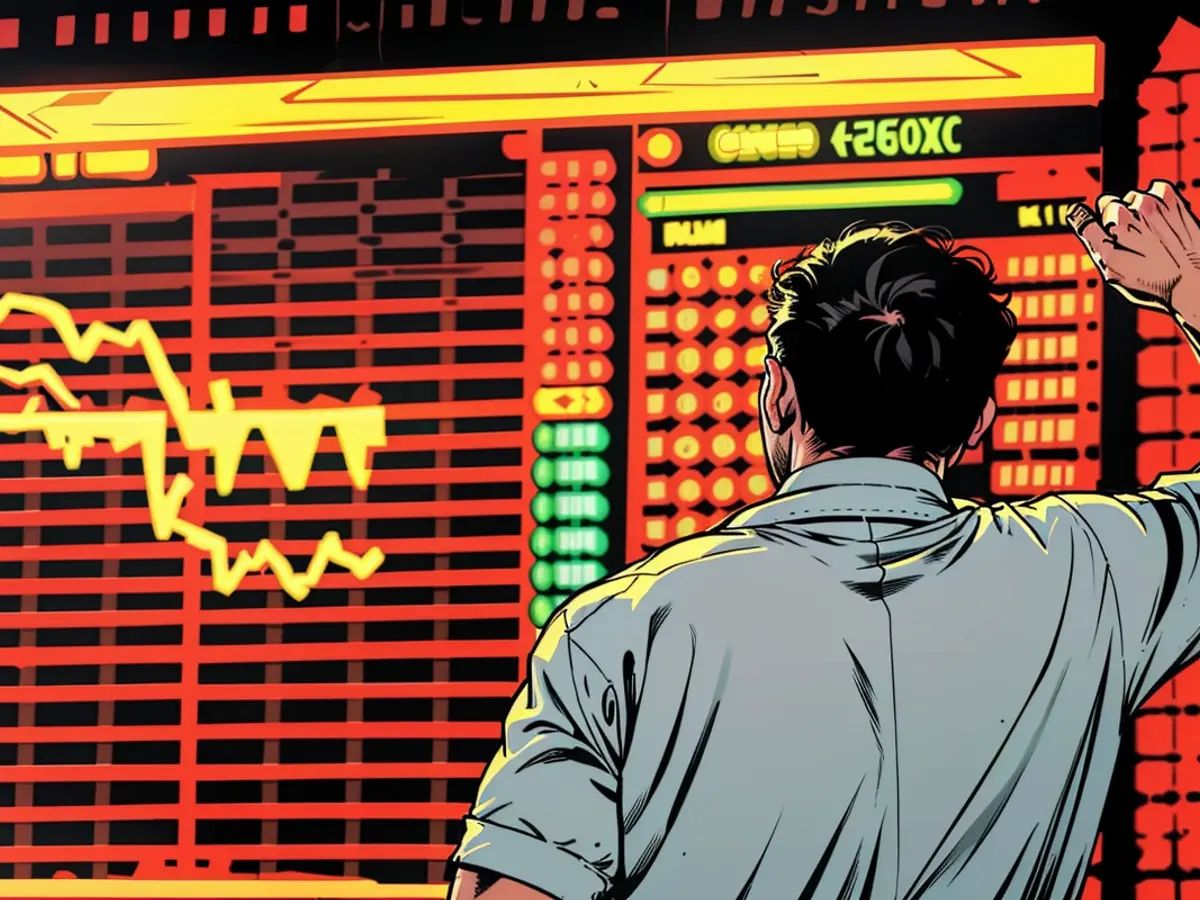China's equities surge relies on an unstable foundation
President Xi Jinping has ignited the biggest stock surge in Asia since 2008 through substantial financial injections. However, if he fails to sustain the supply, the celebration might not last long. The clock is ticking, and options are scarce.
Chinese stock traders are keeping their phones glued to their hands these days. After the festival break around National Day, the CSI 300, tracking significant stocks on Shanghai and Shenzhen exchanges, jumped an astounding 11% at the morning trade on Tuesday. The excitement failed to last till the end of the day, and the index only marked a 6% increase. Today, the index dipped by over 7%, the largest fall since 2020.
The volatile stock market is a red flag. The rally in China's stock market seems highly unstable, and traders believe the rally likely to continue from the record-breaking week since 2008's financial crisis. On September 24, China's central bank announced the largest financial stimulus since the Covid-19 pandemic. They also lowered interest rates and mortgage fees, along with the minimum down payment for home purchases. In just two weeks, CSI 300 saw a 30% increase, despite a trading hiatus from October 1 to October 5.
However, incorporating more and more investors are disheartened post the big rally. People are optimistic that China's economic strategists will continue providing additional stimulus packages. However, Beijing's officials are not delivering as expected. "When you feed the beast," says a financial analyst, "You have to keep feeding it. Otherwise, it might turn against you."
China's financial strategists are nourishing the beast
The erratic stock market movements are a strong indication that the winning streak in the market could just be a temporary phenomenon. Hope is the driving force behind the market fever. Only the anticipation of more stimulus packages keeps the hype alive. But in reality, conditions in China are far from ideal.
"I am absolutely sure that China's economy will meet its annual official growth target of 5%," said China's top financial planner on Tuesday. However, he had nothing to offer besides mere optimism. No new programs intended for investor satisfaction.
Despite meeting China's potential self-imposed target, the growth rate would still remain at record lows. The era of China's 10% annual growth is a relic of the past. The real estate crash has gripped the nation: Banks are saddled with a mountain of non-performing loans, following the credit bubble expansion in the real estate sector, ordered by the party. Empty ghost cities dot the Chinese landscape, a sad reminder of the real estate bubble. Since the Covid pandemic, China's economic engine has never truly recovered.
It appears now that the stock market bubble is about to burst. Analysts at Morgan Stanley have already started giving warning signals. "The sustainability of this China rally depends on whether the fiscal promises are followed by action," says a Hong Kong-based investment manager, citing an analyst. However, the decision-makers in Beijing remain tight-lipped, only revealing plans to issue ultra-long-term bonds. The amount and timing of the expenditure remain uncertain.
Shanghai's historical crash course
The World Bank now believes that the recent economic stimulus measures are "no substitute for the structural reforms necessary to boost long-term growth." They still expect a 4.8% growth rate for this year, but predict only 4.3% growth by 2024. Last year, the International Monetary Fund (IMF) also anticipated China's growth rate to slow down to below 4% in the long term.
It's clear that piling on more debt is not an option: "Only if significant and sustained fiscal measures are implemented, can China's economy rebound," says the China chief economist of Jones Lang LaSalle. But opinions remain divided on whether the rescue plan will succeed, and if this is the right time to invest in China's market boom or move away from the Chinese stock market.
In the past, stock market rallies in China have proved to be unstable: In 2014, when China was also in an economic slump, and the party was releasing stimulus measures, the Shanghai Stock Exchange's value doubled in just six months. Following this, it experienced a 40% collapse in just a few weeks starting mid-2015.
To add to this, are geopolitical shifts and risks that cannot be overlooked, the primary being the U.S. presidential election in a month. If Donald Trump emerges victorious and implements his 60% tariff on all Chinese imports, it will definitely have an impact on the stock markets in Shanghai and Shenzhen. Therefore, Xi Jinping might have no choice but to keep the monetary policy loose.
The global investment community is closely watching China's economic moves, given the significant impact on the global market from the 2008 financial crisis. Despite China's central bank announcing the largest financial stimulus since the Covid-19 pandemic, uncertainty prevails among investors.
The recent stock surge in China, led by President Xi Jinping's financial injections, has raised concerns about China's economic stability among analysts and investors worldwide.








